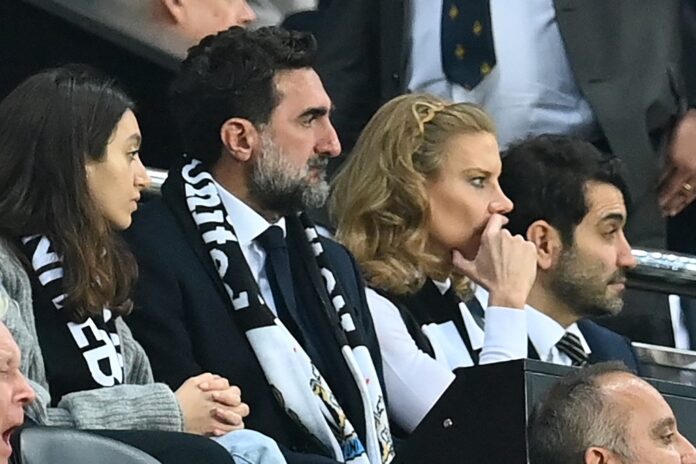NEWCASTLE: “Rome wasn’t built in a day” was the almost universal sentiment among the executives, deal-doers and football folk assembled in the chairman’s suite after the first game of the Saudi era at Newcastle United.
They would have been overjoyed at a victory, but Tottenham Hotspur deflated the Geordie balloon with three first-half goals, sending the raucous fans and business glitterati into a mood of reflective soul-searching after the final whistle.
Yasir Al-Rumayyan, governor of the Kingdom’s Public Investment Fund — which owns 80 percent of Newcastle — was there, as was Amanda Staveley, the financial entrepreneur who brokered the deal, and James Reuben, of the billionaire dynasty, who each have a 10 percent stake.
Staveley, radiant in black and white couture, has been trying to push a bid for Newcastle through for the past four years, while the PIF and the Reubens have spent nearly two years on their now-successful attempt, so they all know the value of patience. They will have to show plenty of that in the Newcastle rebuild now underway.
One of the messages hammered home by Staveley since the bid went through has been that while Newcastle is now the richest club in the world on paper, it does not want to start throwing money around on players, celebrity managers, and all the other big-ticket items that football fans crave.
There is a priority list: A director of football, an overhaul of the neglected commercial side of the club, investment in training facilities, and a facelift for the St. James’ Park ground.
If the corporate hospitality and executive areas of the ground are anything to go by, not too much money will have to be spent on the ground apart from replacing the ubiquitous advertising for Sports Direct, the former owner’s company. A new sponsor will probably emerge pretty soon from within the Saudi corporate structure. But new training facilities are a must, the suits agreed.
It all has to be done, they insisted, within the confines of the financial fair-play rules put in place by the European football authorities.
The fans might chant “We are Saudi, we do what we want,” but the hard-nosed businesspeople know this is not the case.
One adviser to the takeover consortium pressed the point that these regulations are now being applied much more stringently than in the past, when oligarch owners would run rings around the regulators by hiring an expensive army of hot-shot lawyers.
Saudi Arabia will have to assess its investment — with as much as $340 million pledged for the club and the Newcastle environs — very carefully indeed to stay within the laws of the football business.
The other burning question is whether the club needs more capacity at the ground. Seating capacity of 52,000 is pretty good by Premier League standards, but there is a big waiting list for season tickets, and extra seats could add significantly to the club’s revenues.
But St. James’ Park is a city-center ground and is hemmed in on at least one side by listed real estate, limiting the scope for expansion. That is a business decision that will have to be taken at some stage.
After the game, the businesspeople were trying to recapture the optimism of the second minute when Newcastle had taken the lead, rather than weighing the minutiae of investment decisions.
There was a general consensus that the defeat to Spurs was a blessing in disguise because it demonstrated the scale of the investment needed to get Newcastle back among the Premier League leaders.
The executives understand that it will take time. But they have a job on their hands to persuade the long-suffering fans, who have endured 14 years in the financial wilderness, that they might have to wait a little longer for the glory days to return.

